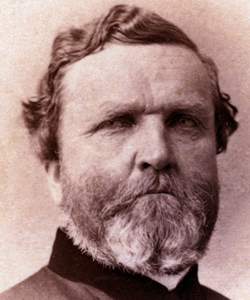George Henry Thomas (American National Biography)
Scholarship
Although promoted to major general in the regular army on 15 December 1864 and bestowed the official thanks of Congress on 3 March 1865, Thomas ended his war career with bitter feelings toward the army because of the grudging manner in which he had been treated and the slowness of his promotions. It is possible that President Andrew Johnson wanted to replace Grant with Thomas when he offered the latter the brevet ranks of lieutenant general and general in 1868. Regardless of Johnson's intentions, Thomas declined, saying it was now too late to reward him for his war service. For four years, beginning in 1865, Thomas held garrison and departmental commands at Nashville and Louisville. In 1869, at his request, Thomas took command of the Military Division of the Pacific, but soon after arriving he died of a stroke in San Francisco while replying to a published criticism of his conduct at Nashville.
Although admired by his men for his careful approach to battle, Thomas was perceived by Grant and others as sluggish and incapable of conducting a vigorous offensive campaign. Though unappreciated, his genius was on the defensive, where his slow, stubborn refusal to yield were attributes rather than hindrances.
Although admired by his men for his careful approach to battle, Thomas was perceived by Grant and others as sluggish and incapable of conducting a vigorous offensive campaign. Though unappreciated, his genius was on the defensive, where his slow, stubborn refusal to yield were attributes rather than hindrances.
Herman Hattaway and Michael D. Smith, "Thomas, George Henry," American National Biography Online, February 2000, http://www.anb.org/articles/04/04-00983.html.



